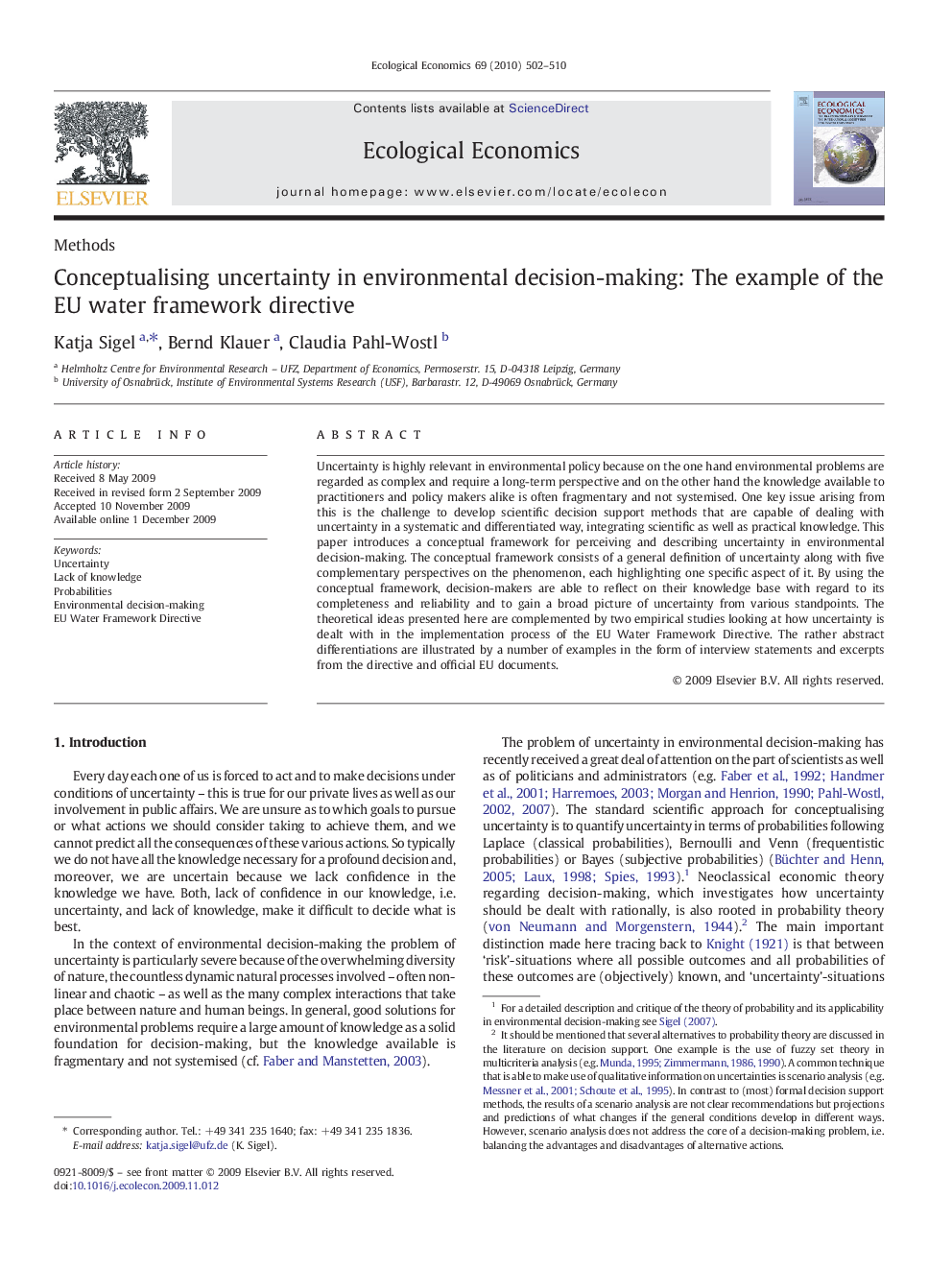| Article ID | Journal | Published Year | Pages | File Type |
|---|---|---|---|---|
| 5051118 | Ecological Economics | 2010 | 9 Pages |
Uncertainty is highly relevant in environmental policy because on the one hand environmental problems are regarded as complex and require a long-term perspective and on the other hand the knowledge available to practitioners and policy makers alike is often fragmentary and not systemised. One key issue arising from this is the challenge to develop scientific decision support methods that are capable of dealing with uncertainty in a systematic and differentiated way, integrating scientific as well as practical knowledge. This paper introduces a conceptual framework for perceiving and describing uncertainty in environmental decision-making. The conceptual framework consists of a general definition of uncertainty along with five complementary perspectives on the phenomenon, each highlighting one specific aspect of it. By using the conceptual framework, decision-makers are able to reflect on their knowledge base with regard to its completeness and reliability and to gain a broad picture of uncertainty from various standpoints. The theoretical ideas presented here are complemented by two empirical studies looking at how uncertainty is dealt with in the implementation process of the EU Water Framework Directive. The rather abstract differentiations are illustrated by a number of examples in the form of interview statements and excerpts from the directive and official EU documents.
